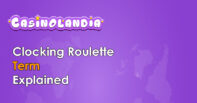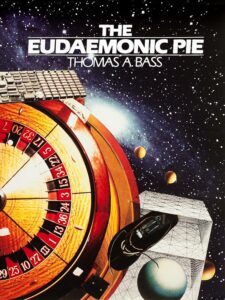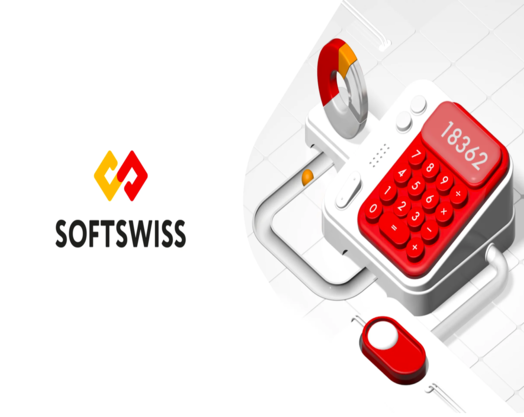Glossary Term
Clocking


Clocking
Used In: Roulette
Introduction to Clocking
Clocking in the context of roulette refers to the practice of observing and recording the outcomes of spins to identify patterns or biases in the wheel. Essentially, it involves tracking the behavior of the roulette wheel to gain an advantage in predicting where the ball will land. This technique is often employed by skilled players or advantage gamblers seeking to exploit imperfections in the wheel's mechanics or manufacturing.
The significance of clocking lies in its potential to provide players with valuable information about the game's outcome, thereby increasing their chances of winning. By discerning patterns or biases in the wheel, players can make more informed bets and potentially secure higher payouts.
In essence, clocking serves as a strategic tool in the game of roulette, allowing players to capitalize on perceived irregularities in the wheel's behavior to gain an edge over the house.
History of Clocking
Clocking in roulette has a storied history dating back to the early days of the game. While the exact origins of the practice are difficult to pinpoint, instances of players attempting to exploit patterns or biases in the roulette wheel have been documented for centuries.
One notable period in the history of clocking occurred during the 19th century when roulette gained popularity in casinos across Europe. As the game evolved and became more widespread, players began to experiment with various strategies to gain an advantage, including the systematic observation of wheel behavior. Throughout the years, several individuals have become associated with the practice of clocking in roulette. One such figure is Joseph Jagger, a British engineer who famously exploited a bias in a roulette wheel at the Monte Carlo Casino in 1873. Jagger meticulously recorded the outcomes of spins and identified a pattern of uneven distribution, allowing him to win a significant amount of money before the casino caught on and made adjustments to the wheel.


The history of clocking in roulette is marked by instances of individuals and groups leveraging their knowledge of the game and its mechanics to gain an edge over the house, sometimes with remarkable success. While advancements in technology and security measures have made it more challenging to engage in clocking today, its legacy continues to fascinate and inspire both players and enthusiasts of the game.
How Clocking Works
Clocking in roulette involves a systematic approach to observing and analyzing the outcomes of spins to identify patterns or biases in the wheel. Players who engage in clocking typically employ several techniques to track these outcomes accurately. One common technique used in clocking is recording the results of spins using pen and paper or electronic devices. Players meticulously document the numbers or sectors where the ball lands after each spin, along with relevant information such as the time of the spin and any observed wheel behaviors. Additionally, players may utilize visual cues to aid in their observations. This can include monitoring the speed of the wheel's rotation, the velocity of the ball, and any irregularities in the movement or behavior of the wheel. Furthermore, specialized equipment or tools may be employed in clocking efforts. These can range from sophisticated electronic devices designed to track wheel speeds and ball trajectories to simpler tools such as magnets or laser devices used to measure wheel imperfections.
Legality and Ethics
The legality of clocking in roulette varies depending on the jurisdiction in which the game is being played. In some regions, such as Nevada in the United States, casinos are highly regulated, and any form of advantage play, including clocking, is strictly prohibited. Engaging in clocking in these areas can result in severe penalties, including expulsion from the casino and potential legal consequences.
However, in other jurisdictions where gambling regulations are less stringent or where specific laws regarding advantage play are absent, the legality of clocking may be less clear-cut. Some players argue that as long as they are not using any illegal devices or methods to manipulate the game, observing and analyzing the outcomes of spins should be considered a legitimate strategy. Despite the legal considerations, there are also ethical considerations surrounding the practice of clocking. While some view it as a harmless strategy akin to card counting in blackjack, others argue that it represents an unfair advantage that goes against the spirit of the game. Casinos invest significant resources in maintaining the integrity and randomness of their games, and players who attempt to exploit vulnerabilities in the system may be seen as acting unethically.
Risks and Consequences
Attempting to clock a roulette wheel carries inherent risks for players, both in terms of financial loss and potential legal repercussions. One of the primary risks is that casinos actively monitor for suspicious behavior, including prolonged observation of the wheel or patterns of betting that indicate advantage play. If caught, players may face immediate expulsion from the casino, forfeiture of winnings, and bans from future gambling establishments.
Furthermore, even if players are successful in their attempts to clock the wheel and exploit biases, there is no guarantee of continued success. Roulette outcomes are inherently random, and what may appear to be a pattern or bias could simply be a statistical anomaly. As a result, players who rely too heavily on clocking as a strategy may find themselves facing significant losses over time.
In addition to the immediate risks of expulsion and financial loss, engaging in clocking can also damage a player's reputation within the gambling community. Casinos share information about known advantage players, making it difficult for them to gamble anonymously or gain access to high-stakes games in the future.
Countermeasures for Clocking
In addition to regular maintenance, casinos may implement strict security measures, such as surveillance cameras and trained personnel, to monitor for suspicious behavior and identify players attempting to clock the wheel. Staff members are trained to look for patterns and abnormalities in the game that could indicate advantage play, such as a player betting only when the ball is in a particular section of the wheel or placing bets after the ball has already landed.
To thwart clocking attempts, some casinos also utilize automated systems that track the outcomes of spins and detect any patterns or abnormalities that may indicate advantage play. These systems can alert casino staff to potential threats in real-time, allowing them to take immediate action to prevent further exploitation of the game.
Furthermore, casinos may implement rules and policies aimed at discouraging clocking, such as limiting the amount of time players can spend at the roulette table or restricting the use of electronic devices. Some casinos may also require players to use specific chips or play a minimum number of rounds to discourage clockers from attempting to win big quickly and leaving before they can be caught.
By imposing these restrictions and maintaining vigilant oversight of their gaming operations, casinos aim to deter clocking and uphold the fairness and integrity of their games while ensuring an enjoyable and safe environment for all players.
The Top Online Casinos for Roulette Gambling
The top online casinos for roulette gambling boast a diverse selection of roulette variants, ranging from classic European and American roulette to innovative variations like multi-wheel and live dealer roulette.




Author
Gabriela Kirilova | Content Optimization Director









